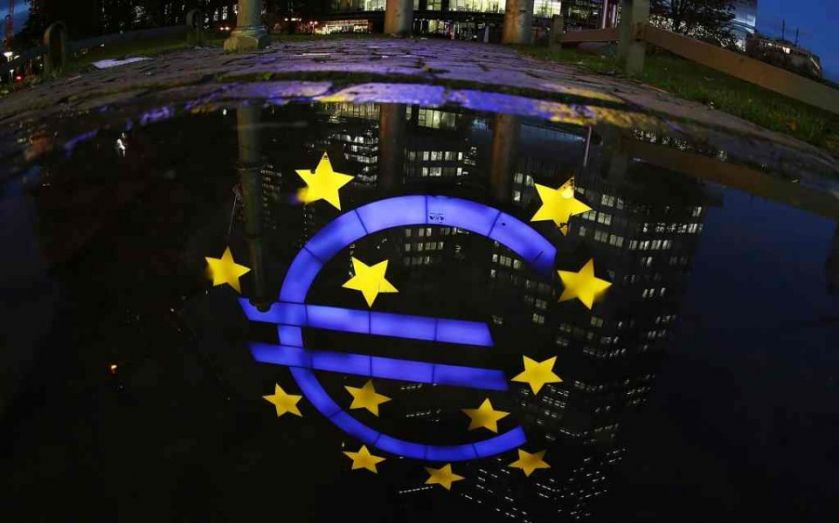Eurozone GDP grew 0.3 per cent in the fourth quarter of 2014

After a fractious few days for Eurozone leaders, this should come as a relief: a growth in the 18-nation bloc rose to 0.3 per cent in the final quarter of 2014, a preliminary estimate showed this morning, beating analyst estimates of 0.2 per cent.
Eurostat, the region's official statistics authority, said that puts total growth in 2014 up to 0.9 per cent, just beating expectations of 0.8 per cent growth.
Growth in the EU28, which includes the UK, hit 0.4 per cent, up from 0.3 per cent in the previous quarter. Over the full year, growth hit 1.4 per cent.
Figures out earlier this morning showed German growth jumped to 0.7 per cent during the quarter, from 0.1 per cent during the fourth quarter. Meanwhile, French GDP rose a less encouraging 0.3 per cent.

Despite the better-than-expected figure, though, it is nonetheless anaemic. Last month it slipped further into deflation, with prices falling 0.6 per cent, down from a 0.2 per cent fall in December.
At the time, analysts suggested the figure "fully vindicated" the European Central Bank's (ECB) decision to launch a t €1.2 trillion bond-buying programme. However, rock-bottom oil prices are still causing concern.
Today Howard Archer, chief UK and European economist at IHS Global Insight, pointed out that oil prices will lead to a "markedly weaker euro".
Appreciable stimulus is now coming from very weak oil prices, a markedly weaker euro and increasingly accomodative monetary policy, which will now be supplemented by the ECB’s Quantitative Easing program. The marked retreat in the euro to recently hit an 11-year low of US$1.1098 is very helpful for Eurozone competitiveness and growth prospects while the appreciable retreat in oil prices to a recent near six-year low of US$45.2/barrel are helping companies’ margins as well as consumers’ purchasing power. Furthermore, markedly lower oil prices should be helpful overall to global growth prospects, which would benefit Eurozone exports in tandem with the weaker euro.
Greek tragedy
Meanwhile, Greek GDP contracted 0.2 per cent, a disappointing performance considering analysts had expected growth of 0.2 per cent.
The figures followed days of negotiations among Eurozone leaders, as Greece's new anti-austerity Prime Minister Alexis Tsipras sought to cancel its bailout deal. Last night German leader Angela Merkel remained firm on the point that "Europe's credibility depends on us sticking to rules", although she added that a compromise was possible.